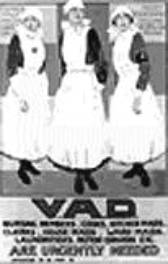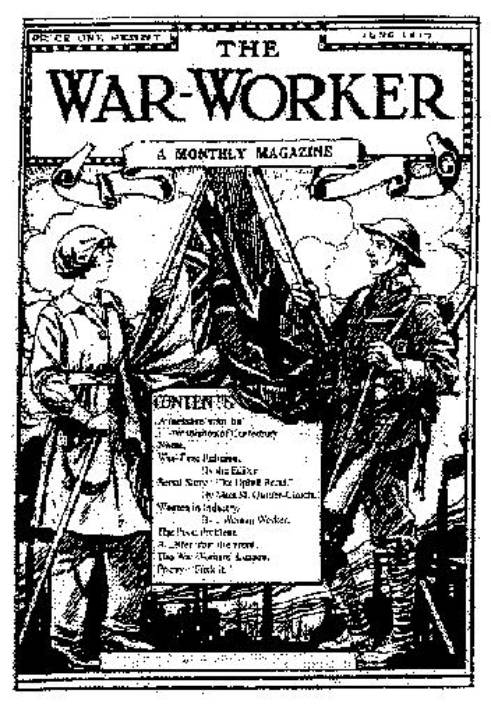|
|
Going DeeperThe following links will help you widen your knowledge: Basic comment - Latifa School
Source Documents Historians' debate - did WWI get women the vote? Old GCSE sourcework questions - I or II
Source B
A WWI poster recruiting nurses, 1916.
|
|
In February 1914, Sylvia Pankhurst had fallen out with her mother and sister, and formed her own East London Federation of Suffragettes. Unlike the WSPU, it was working class, and wanted the vote as just one way to improve the condition of poor women. On 20 June, she took a deputation of East London working-class women to see Asquith: Source AStout old Mrs Savoy, the brush-maker, jolly and brave… In spite of her poverty she was ever ready to share her last crust… Motherly, anxious Mrs Payne. Mrs Bird, the wife of a transport worker… Mrs Parsons, a frail little woman Mrs Watkins. Mrs Scarr, who till the advent of the Suffragettes in 1905–6 had been a ‘quiet housewife’… They brought before the Prime Minister, in simple, moving phrases, the toilsome life of poor women. Always they returned to their demand for a place in the constitution – a vote for every woman over 21. Each woman repeated and emphasized the demand in her own fashion. Asquith’s reply revealed an unmistakable softening in his long hostility; almost he seemed to declare himself a convert! Sylvia Pankhurst, The Suffragette Movement (1931).
|
|
|
During the First World War, women worked alongside men to defeated the enemy. They joined the armed forces as cook, carpenters and drivers. They served as nurses on the Western Front. At home, they worked in arms factories, and as firemen, bus drivers and navvies. Politicians, including Asquith, lined up to praise them (Source J). 1917 was a year of crisis for the government. The battle of Passchendaele was going badly, and the French soldiers mutinied, threatening to take the French out of the war altogether. People – particularly those men soldiers who did not have the vote because they were not ratepayers – were asking what was in the war for them. The government had to look to maintaining morale, and began to speak about making ‘a land fit for heroes’ when the war was over. In 1917, the government decided to give the soldiers the vote. The women suffragist societies demanded that they, too, be included. In May 1917 the Representation of the People Bill was debated in the Commons and passed by a large majority, and in 1918 it became law, giving the vote to women over the age of 30. Historians debate whether the war was instrumental in gaining women the vote.
|
Source CWoman cannot fight in the sense of going out with rifles and so forth, but they fill our munitions factories, they are doing the work which the men who are fighting had to do before, and they have aided in the most effective way the prosecution of the war. Asquith, speaking in August 1916
|
Source DMen and women united in a common cause
The cover of the War Worker magazine, June 1917.
Source EMale attitudes to women workers during the First World War Attitudes to women workers remained, in many cases, negative. The ability of women to take on that had been men’s work meant that increasing numbers of males were vulnerable to conscription. Some women doing skilled work had the full co-operation of male employees. Many other women were restricted to less skilled work and were victims of hostility and even of sabotage. From War and Society in Britain 1899–1948, by Rex Pope, an historian, 1991.
|
Consider:1. Read Asquith’s statement in the 1912 debate. Why do you think the visit of the East London women had such a big effect on him? 2. Read this webpage and list all the reasons you can suggest why women got the vote in 1917. 3. Read the statements of those who spoke FOR the Bill of 1917. What reasons did they give why they were for it? 4. Read the historians' debate about whether the war brought women the vote. How important was the war in getting women the vote?.
|
|
| |

